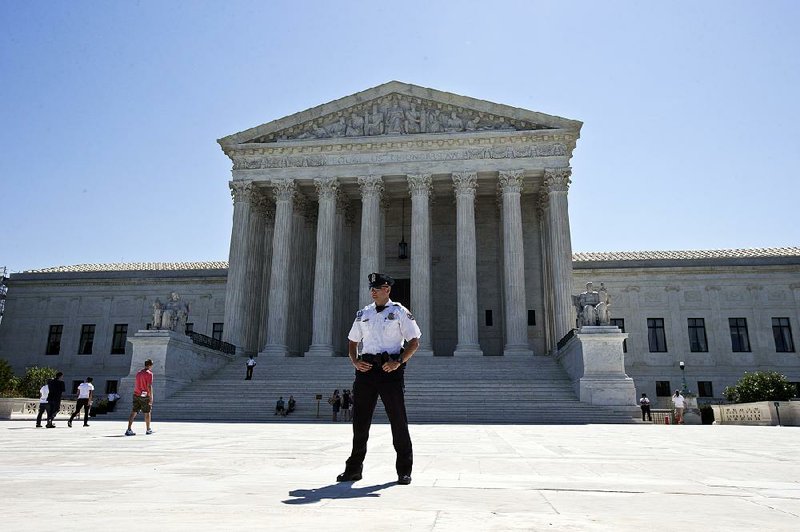WASHINGTON -- The Supreme Court ruled Monday that courts need not suppress evidence of a crime even if the arresting police officer used unlawful tactics to obtain it. The decision prompted fierce dissents from three of the court's more-liberal justices.
The court voted 5 to 3 to reverse a decision of the Utah Supreme Court that threw out the drug possession evidence seized from Edward Strieff in 2006. The majority agreed that South Salt Lake police officer Douglas Fackrell did not have reasonable suspicion to stop Strieff. But once Fackrell radioed in and found there was an outstanding warrant on Strieff for a traffic violation, his search that turned up the drugs was legitimate.
"While Officer Fackrell's decision to initiate the stop was mistaken, his conduct thereafter was lawful," Justice Clarence Thomas wrote for the majority. He said the intervening discovery of the warrant meant that the search that discovered the drugs was allowed.
Thomas wrote that there was no evidence that the officer's actions were more than negligence. If there was reason to believe that the Police Department used outstanding warrants to create a "dragnet" situation, the outcome could be different, Thomas wrote.
Justice Stephen Breyer joined Chief Justice John Roberts and Justices Anthony Kennedy and Samuel Alito in the majority.
But Breyer's fellow liberals, Justices Sonia Sotomayor and Elena Kagan, each wrote blistering dissents, and each was joined by Justice Ruth Bader Ginsburg.
"The court today holds that the discovery of a warrant for an unpaid parking ticket will forgive a police officer's violation of your Fourth Amendment rights," Sotomayor wrote.
Writing only for herself and drawing on her "professional experiences," Sotomayor added that "unlawful 'stops' have severe consequences much greater than the inconvenience suggested by the name." She said members of minority groups are more likely to be the subjects of such stops, and thus to be treated as "second-class citizens."
Sotomayor wrote: "By legitimizing the conduct that produces this double consciousness, this case tells everyone, white and black, guilty and innocent, that an officer can verify your legal status at any time."
Kagan said Fackrell's actions were "far from a Barney Fife-type mishap," referring to the incompetent deputy on The Andy Griffith Show. She and Sotomayor noted that there are millions of outstanding warrants for Americans on minor charges that could be used as justification for seizures.
Fackrell in December 2006 was checking out an anonymous tip that a house was being used for drug sales. He watched the house for about three hours over the course of a week.
At some point, Fackrell decided he would question the next person he saw leave the house, which was Strieff. Fackrell explained his purposes and asked Strieff for identification. He called in the information and found there was a warrant for Strieff's arrest on a minor traffic violation. He arrested Strieff, searched him and found drugs.
The "discovery of the arrest warrant attenuated the connection between the unlawful stop and the evidence seized from Strieff incident to arrest," Thomas wrote.
The case is Utah v. Strieff.
A Section on 06/21/2016

